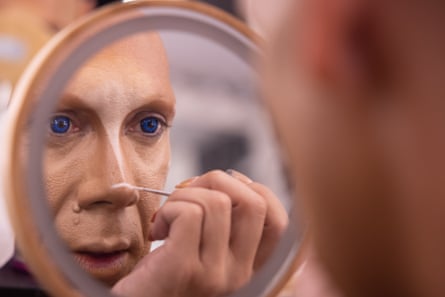In a cosy dressing room tucked into a nook of Sydney’s Carriageworks, eight drag queens are in a flurry preparing for their last bid to take home the crown of all crowns: the first ever Miss First Nation Supreme Queen.
Amid the contouring, the gluing of eyelashes and the securing of wigs, the sass flies among the competitors thick and fast. “Pomara, please tell me again about how you were on RuPaul’s,” yells Trinity Max, who is of Māori and Cook Islands heritage. “Oh, shut up!” shoots back Pomara Fifth, a Kamilaroi queen – and RuPaul’s Drag Race Down Under season two contestant.
But the air of competitiveness is only surface level. After all, the Miss First Nation competition, where Aboriginal and Torres Strait Islander queens battle it out to be crowned drag royalty, is also about joy and celebrating how far the queens, for whom song and dance is an integral part of culture, have come.
“For the first three or four years I was the only First Nations queen that I know of in Brisbane, so having that connection to culture and my sisters was very hard to find … I had my other drag sisters but they only knew a part of what I am,” says Chocolate Boxx, a Dunghutti, Kamilaroi and Bunjalung queen who started drag eight years ago.
-
‘To be here now, surrounded by my sisters, has honestly been the best part and just warms this cold drag queen’s heart.’ – Chocolate Boxx
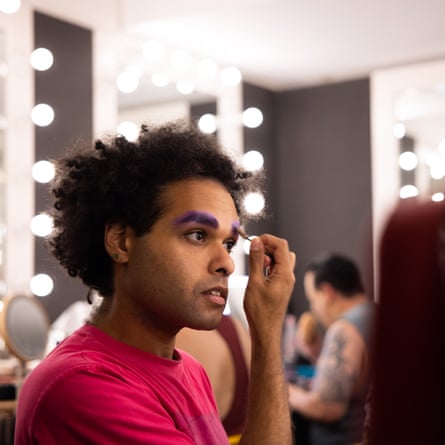
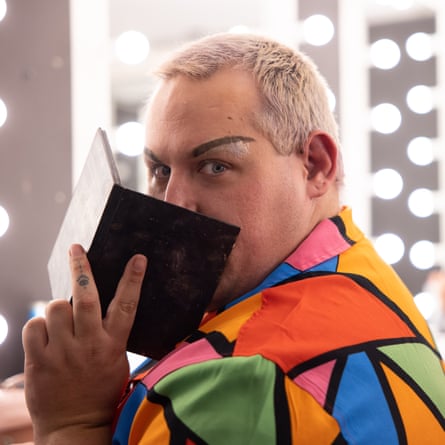
Miss First Nation has been a fixture on the Australian drag circuit since its humble beginnings in Darwin in 2017. But this year, to mark Sydney WorldPride, the First Nations queens are enriching Mardi Gras season in a history-making showcase of queer Black excellence.
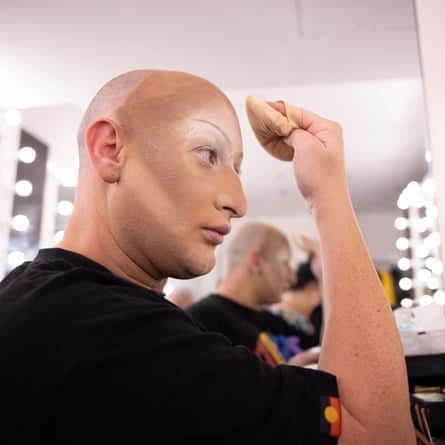
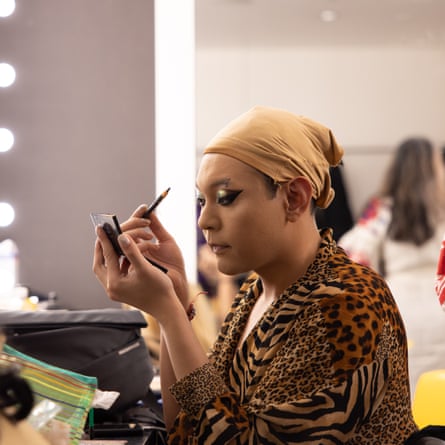
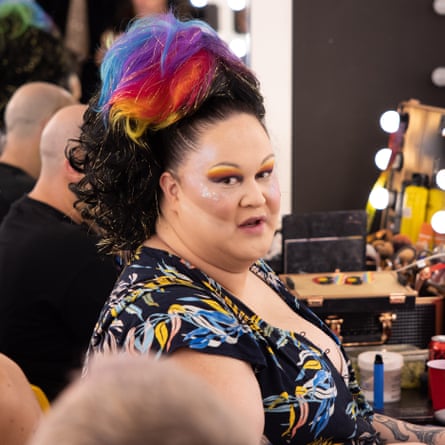
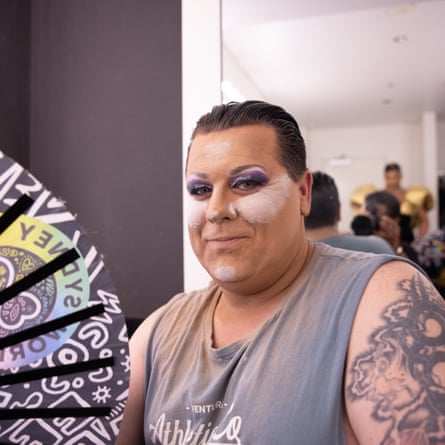
The royal highnesses from past competitions have returned, alongside Indigenous queens from around the world. And it’s taking place at the largest First Nations gathering to ever grace WorldPride: Marri Madung Butbut, meaning “many brave hearts” in Gadigal language. Carriageworks has been transformed into a celebration of the “rainbow heart” of the world’s oldest surviving culture.
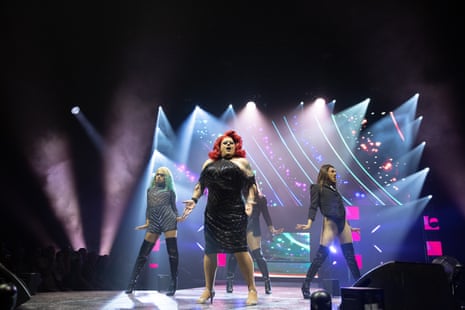
Out on the stage, the queens each have their turn belting out their lip-synced ballad to an elated, sold-out room. After two heats the night prior which were dedicated to showing off costumes and the best “non-conventional” drag talent, the queens have reached the grand final.
Each act is as intoxicating and adrenaline dipped as the last. There were those who channelled the escapism and liberation of drag, such as Lacey Dunaman, a Kamilaroi queen and Darwin local whose character is an ode to the Australian Idol winner Casey Donovan; she gives a heart-wrenching rendition of Whitney Houston’s I Have Nothing. Chocolate Boxx woos the crowd with a dip, vogue style.
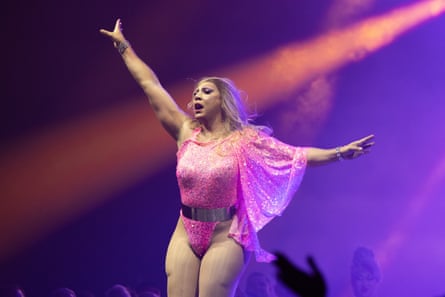
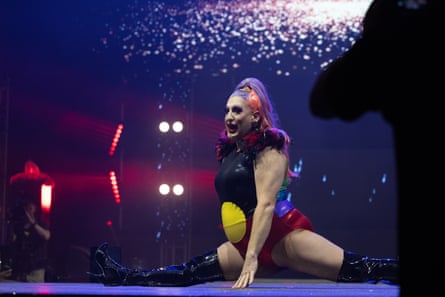
And the Gurindji, Malak Malak and Badu Island queen Josie Baker, who named herself after the first Black woman to star in a major film, Josephine Baker, is in a pink leotard, belting out Mariah Carey.
There are nods to the ongoing fight for LGBTQ+ equality. Wiradjuri queen Timberlina, who lives in Newcastle and tours regional and rural Australia with her performance, strips off her yellow dress to show a leotard with the Indigenous flag on the front and the pride flag on the back.
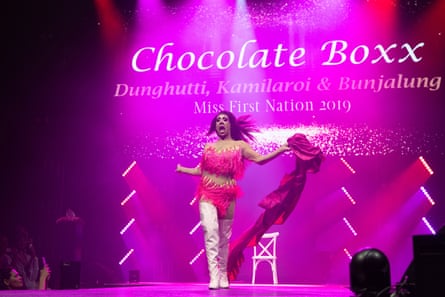
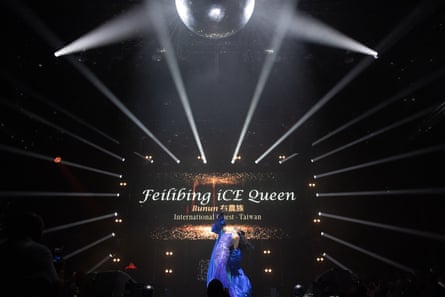
Trans queen Trinity Ice, from New Zealand, begins her performance with a declaration that trans people are more than the sum of their body parts. She and Feilibing iCE Queen – who is a Bunun queen from Taiwan – were invited to compete as trailblazers in the First Nations drag scene in their own countries.
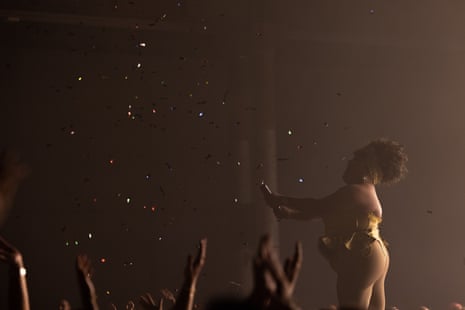
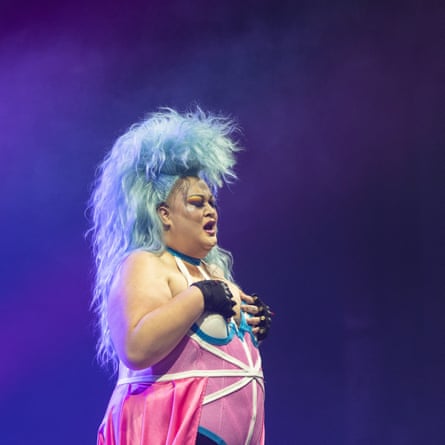
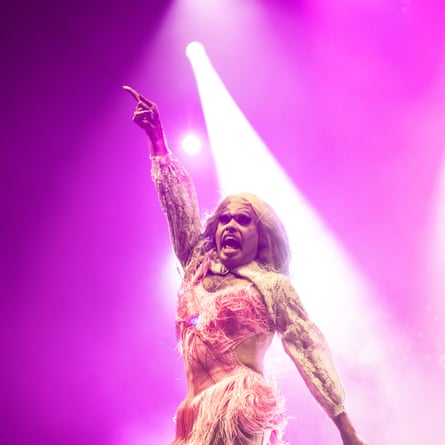
But sitting tantalisingly on stage for the duration of the performance is the glittering crown, a reminder that there can be only one Miss First Nation Supreme Queen.
The ultimate winner was the Meriam and Erub Kebi Le queen Cerulian, whose performance had many in the crowd out of their chairs.
Drenched in confetti, in a dazzling gold ballroom gown and the crown atop her head, she tells the Guardian: “I’m ready to be that person that spearheads the First Nations queer scene. This crown gives me the backing to do that and help pop out some drag babies soon.”
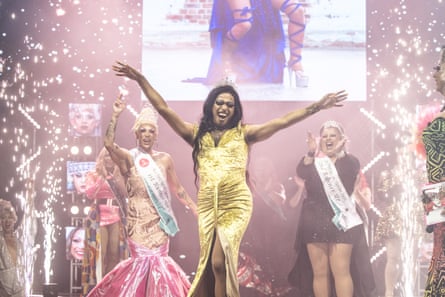
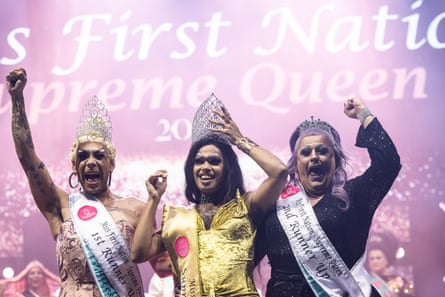
Paving the way for the younger LGBTQ+ mob is what drives many of the queens. Since being the only, then one of a few First Nations drag queens in Brisbane, Chocolate Boxx says the scene is only getting bigger and bigger. “A lot of the girls coming into the scene now” approach her to say they have been inspired by queens like her to start dabbling in makeup and performance.
“It important that we show younger mob that it’s OK to be themselves and be who they are,” Chocolate Boxx says. “That they can express themselves in whatever way they want.”

